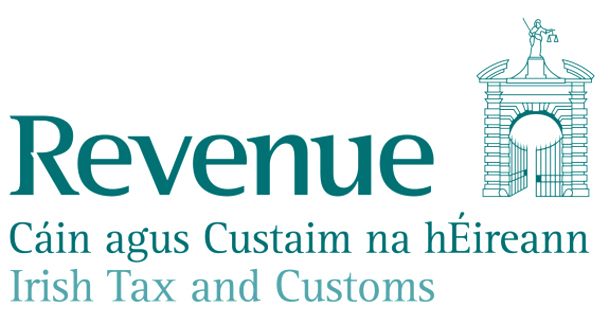Ireland’s OAPs will pay up to €223 extra for their phone bill in 2013


Almost 400,000 pensioners will have to pay between €156 and €233 a year extra for their phone, due to Budget cuts.
Eircom has sent letters to its elderly customers in the wake of a Government decision to slash the State telephone subsidy.
It warned 270,000 over-66s they face having to pay between €195 and €233 extra per year from February.
As part of Budget cutbacks, pensioners availing of the scheme will see their Government subsidy drop from €22.58 to €9.50 a month.
Health and Safety Ireland decrease in workplace deaths in 2012


Figures from the Health and Safety Authority show a 13% decrease in the number of workplace deaths in 2012.
According to the latest figures, 47 people were killed in workplace accidents last year compared to 54 in 2011.
Health and Safety Authority CEO Martin O’Halloran said that while it is a positive development, deaths in the agriculture sector remain too high.
“It’s the best we’ve had since 2009, and prior to that it’s a long time since we’ve had this kind of significant reduction,” he said.
“However there has been a stubborn resilience in the agriculture sector. It’s still at 21, 2011 was 22, and 2010 was 22, so despite a very significant programme working with all the stakeholders, we’re not yet seeing the positive results from those programmes.”
The biggest reduction in fatalities occurred in the transportation and storage sector, with one reported in 2012 compared to seven in 2011.
The construction sector saw an increase in fatalities from six in 2011 to eight in 2012 and there was also an increase in the fishing sector with five deaths in 2011 and seven in 2012.
Mr O’Halloran said he is concerned about construction safety standards: “The increase in fatalities and feedback from our inspectors indicates there has been, in some areas, a slippage in standards.
“We carried out 3,000 inspections in the sector in 2012, and we will continue a high level of engagement during 2013.”
Irish exchequer returns show tax revenues were up €2.6bn in 2012


The Exchequer deficit last year was €10.8bn lower than 2011, according to end of year figures released by the Department of Finance.
Tax revenue was up €2.6bn on the year before to €36bn, while non-tax revenue was €45m higher.
The amount raised in taxes last month was better than expected.
The strong increase in the amount of tax paid in December – which mainly came from two multinational companies and some late payments by self employed people – left the government €270m ahead of target for the year, instead of €210m behind, as feared
That tax gain, a better than expected result from selling off the old analog TV signal to mobile phone companies, and some spending control means a significant improvement in the budget deficit.
The expenditure for 2012 was in line with target with overspends in health and social protection offset by underspending in other areas.
In a statement, Minister for Finance Michael Noonan and the Minister for Public Expenditure and Reform Brendan Howlin said the figures show the “continued improvement we are making”.
Ulster Bank to close in the region of some 20 branches in Ireland


IBOA general secretary Larry Broderick.
Ulster Bank set to close 20 branches nationwide. Ulster Bank says it will close “in the region” of 20 branches and sub-offices in Ireland this year.
In a statement this afternoon, the bank said it will provide further details on the closures to customers and employees within the next few weeks.The Irish Bank Officials’ Association will meet the bank next week, having learned of the closures during a staff conference call last week.
The bank has 146 branches in the Republic of Ireland and 90 in Northern Ireland.
Royal Bank of Scotland, which owns Ulster Bank, has injected at least £10.8 billion into the bank since 2008 to absorb losses after the property market downturn.
Ulster Bank’s operating loss widened in the first nine months of last year to £797m from £751m the same time in 2011, as a fall in interest income offset stabilising loan losses.
Meanwhile, a separate IBOA notice to Ulster Bank members in November said that Jim Brown, the unit’s chief executive officer, told the union that RBS remains committed to its Irish unit. Ulster Bank said last year it will eliminate 950 jobs.
RBS acquired Ulster Bank in 2000 as part of its purchase of National Westminster Bank and expanded three years later through the acquisition of the First Active building society.
HSE is an excuse for a health service in Ireland


Dr Ruairi Hanley says he has heard enough excuses from the HSE for its own shortcomings and analyses some of the damning findings in the PA Consulting report.
As regular readers will be aware, I am no fan of the HSE and its approach to running our health service. Over the past decade, I have been known to employ many colourful phrases to describe my feelings on this subject. Examples include “hellish creation”, and my personal favourite, “incompetent clowns who belong under a circus tent”.
It has been suggested to me recently that such language may be somewhat harsh and unjustified. I freely admit that my approach may occasionally lack finesse. I also acknowledge the existence of some administrators in the HSE who are of above average intelligence and for whom such terms of abuse are probably unjustified. Nonetheless, it remains my view they are part of an organisation that is guilty of managerial incompetence on an unprecedented scale.
My detractors would claim that I have little evidence to back up such a sweeping statement. I would reply by asking how many scandals and fiascos have taken place in our health service over the past decade? How many people have suffered as a result? How many times have our politicians declared that the official institution running the entire system is “unfit for purpose”?
Typical format
Alas, when faced with appalling demonstrations of their own incompetence, the HSE response follows a fairly typical format. First they try to deflect blame, preferably onto a member of the medical profession. Then they set up an ‘inquiry’, which usually drags on for months and never once names a single administrator. The HSE PR machine then announces that it will ‘implement’ the recommendations and the media forgets the scandal in 48 hours. No-one is fired and no-one is held to account.
A few months later, the whole cycle inevitably repeats itself as the latest debacle makes its way into the public domain.
In more recent times, the HSE has eagerly grasped a new excuse for its many failings. ‘Cutbacks’ are apparently the reason that our health service is performing so badly — €13 billion spent by 17,000 administrators is seemingly never enough to get the job done.
Regrettably, the truth is somewhat different. On December 9, The Sunday Independent published a ‘top secret’ leaked report carried out by a firm known as PA Consulting. This group was asked by the Minister for Health to look at the HSE and its approach to financial management. Its reported conclusions appear beyond damning, beyond shocking and beyond disgraceful.
To quote directly, the HSE budgetary difficulties were “a consequence of systemic failings in financial management over a number of years”. The authors went on to say that bureaucrats tended to take “short-term measures” which “do not take into consideration impact on targets or patients safety”.
My favourite part of the report was the revelation that the largest employer in our State, responsible for the health of 4.6 million people, has only a “limited number of staff capable of high-end financial management”. In other words, by definition, many of the people managing our health system are incompetent. That is no longer just my opinion; it now appears to be a statement of fact.
I find it fascinating that our Minister actually felt it necessary to hire a consultancy firm in order to discover this. I have no idea how much this exercise cost, but Dr Reilly could easily have read Irish Medical Times for the past seven years and probably thus reached the same conclusion.
The Sunday Independent also noted the HSE’s suggestion that a lack of “IT systems” was apparently a justification for the epic financial ineptitude revealed in the report. Those using this defence presumably did not mention PPARS — the infamous €160 million fiasco that arose the last time health service administrators tried to introduce a new computer payroll programme. In such a context, I believe claims of technology problems are nothing more than yet another attempt to evade responsibility.
In conclusion, I think my past choice of language to describe the HSE is more than justified. Indeed, in light of this latest report, I have probably been too easy on them.
There is no greater scandal in our State than the incompetent manner in which our health system is being run. Perhaps the day might yet come when we elect political leaders capable of dealing with those responsible.
Quadrantid meteor shower 2013: Your guide to when and where to see the shooting stars
Dr Simon Foster, an astrophysicist from Imperial College London, explains the science behind the Quadrantid meteor shower and how best to see it.
According to Nasa, the Quadrantids come from the EH1 asteroid, which may have come from a piece of broken-up comet.
Amateur British stargazers will be able to view nature’s own “beautiful” firework display from space throughout much of the country depending on clear weather conditions.
The optimum time is expected to be at just before dawn on Friday January 4.
“You don’t want to be in a city or town, because there is lots of light pollution which could ruin any night-time viewing,” said Dr Foster. “You really want to be looking to the north west of the sky, which could be quite tricky if you haven’t got a compass.
“Try and look out for Ursa Major or the Big Dipper as more people know it. You should hopefully see the radiant point – and this where the meteors should be seen streaming from.”
The Quadrantids derive their name from the constellation of Quadrans Muralis (mural quadrant), which was created by the French astronomer Jerome Lalande in 1795.


No comments:
Post a Comment